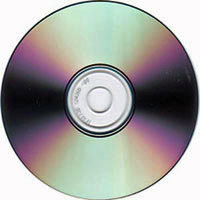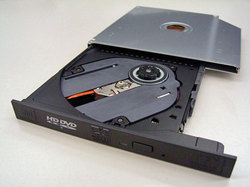Category: HD DVD
The Ten Tech Trends that will define 2007
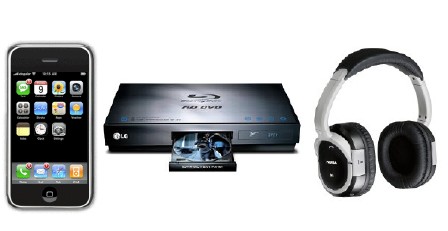
By definition, technology is always evolving faster than any expert can keep up with it, no matter how much of a boffin they are. But right now, in 2007, the pace of change feels more rapid than ever.
Around us, consumer technology products are evolving, converging and spawning new gadgets like mad. Simply keeping up with the main developments is an exhausting (not to mention expensive) process. Still, that doesn’t stop us trying. In recent weeks, I’ve been analysing the ten consumer technology trends that I think are going to be most interesting in the second half of 2007.
Opinion: Can Blu movies make HD exciting?
Jonathan Weinberg writes… IS anyone else bored to tears with the whole Blu-ray v HD-DVD debate. I know I am. Rival film studios and techno firms are falling over themselves to tell us how great their particular new format is,…
Samsung BDP-UP5000 Blu-ray and HD DVD player gets new release date
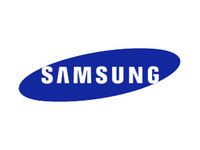 We mentioned Samsung’s proposed dual HD player back in April, with a shipping date of ‘late 2007 initially mentioned. That still looks to be the case, according to new reports.
We mentioned Samsung’s proposed dual HD player back in April, with a shipping date of ‘late 2007 initially mentioned. That still looks to be the case, according to new reports.
This week's hottest high definition stories: Blockbuster support Blu-ray, but do the discs rot?, SIM2 projector, new TVs from Sharp and Pioneer, reviews of JVC and Toshiba, Arcam, Texas Instruments, BrilliantColor
 The biggest news this week, though the HD DVD Promotions Group deny it, is that Blockbuster has chosen Blu-ray over HD DVD. Not surprisingly, Sony is very happy about that, and a Panasonic executive thinks it’s game over for HD DVD.
The biggest news this week, though the HD DVD Promotions Group deny it, is that Blockbuster has chosen Blu-ray over HD DVD. Not surprisingly, Sony is very happy about that, and a Panasonic executive thinks it’s game over for HD DVD.
However, the fly in the ointment could be rotting Blu-ray discs. Not good.
SIM2 has rolled out its HT3000E 1080p projector, while Sharp reveal their latest RD2E 100Hz TVs, and Pioneer release their new plasma TV range with 80% deeper blacks.
2007 Tech Trends No. 3: Blu-ray and HD DVD convergance
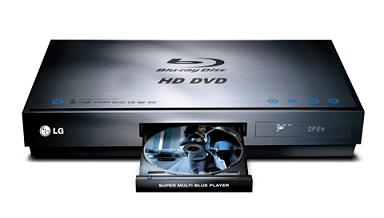
Third in a series of posts highlighting Tech Digest’s pick of big technology trends for the second half of 2007…
Will the rival Blu-ray and HD DVD camps make peace this side of Christmas (or even emerge from their trenches for a festive football match emulating the British and German troops in World War I? Not likely. Their battle will continue at full pelt until someone loses – mainly all the poor punters who plumped for the wrong format.
Toshiba cuts HD DVD sales targets
 Someone, somewhere knows which out of HD DVD and Blu-ray is most likely to win the HD format war. But there’s so much bluster and hype around the area, you’d be forgiven for thinking they’re both winning. By a country mile.
Someone, somewhere knows which out of HD DVD and Blu-ray is most likely to win the HD format war. But there’s so much bluster and hype around the area, you’d be forgiven for thinking they’re both winning. By a country mile.
Toshiba unveils its in-car HD DVD player
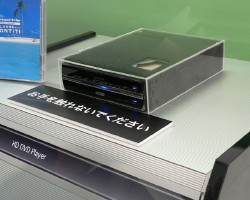 Toshiba has got together with Alpine Electronics to develop an HD DVD player for use in cars. It was shown off at last week’s Automotive Engineering Expo 2007, and should become a commercial product in 2008.
Toshiba has got together with Alpine Electronics to develop an HD DVD player for use in cars. It was shown off at last week’s Automotive Engineering Expo 2007, and should become a commercial product in 2008.
Finn courts say: breaking DRM A-OK (for a surprising reason)

Somewhat hilarious news from Finland: it’s legal to break DVD DRM there because their law only protects “effective” DRM, and “since a Norwegian hacker succeeded in circumventing CSS protection used in DVDs in 1999, end-users have been able to get with ease tens of similar circumventing software from the Internet even free of charge. Some operating systems come with this kind of software pre-installed. […] CSS protection can no longer be held “effective” as defined in law.” If “effective” means it hasn’t been cracked, doesn’t that suggest the DRM becomes unprotected as soon as it is cracked enough? As though vandalism might become legal if you tagged someone’s car thoroughly enough? Or is it simply that the Finns are too sensible to allow the letter of the law to coldcock the spirit? (Disclaimer: I’m a quarter Finn, and I’m devastastingly sensible.) This is not just a Finnish issue, however. “The conclusions of the court can be applied all over Europe since the word ‘effective’ comes directly from the directive. […] A protection measure is no longer effective, when there is widely available end-user software implementing a circumvention method. My understanding is that this is not technology-dependent. The decision can therefore be applied to Blu-Ray and HD-DVD as well in the future.” [GT]
Finnish court rules CSS protection used in DVDs “ineffective” [via Boing Boing










